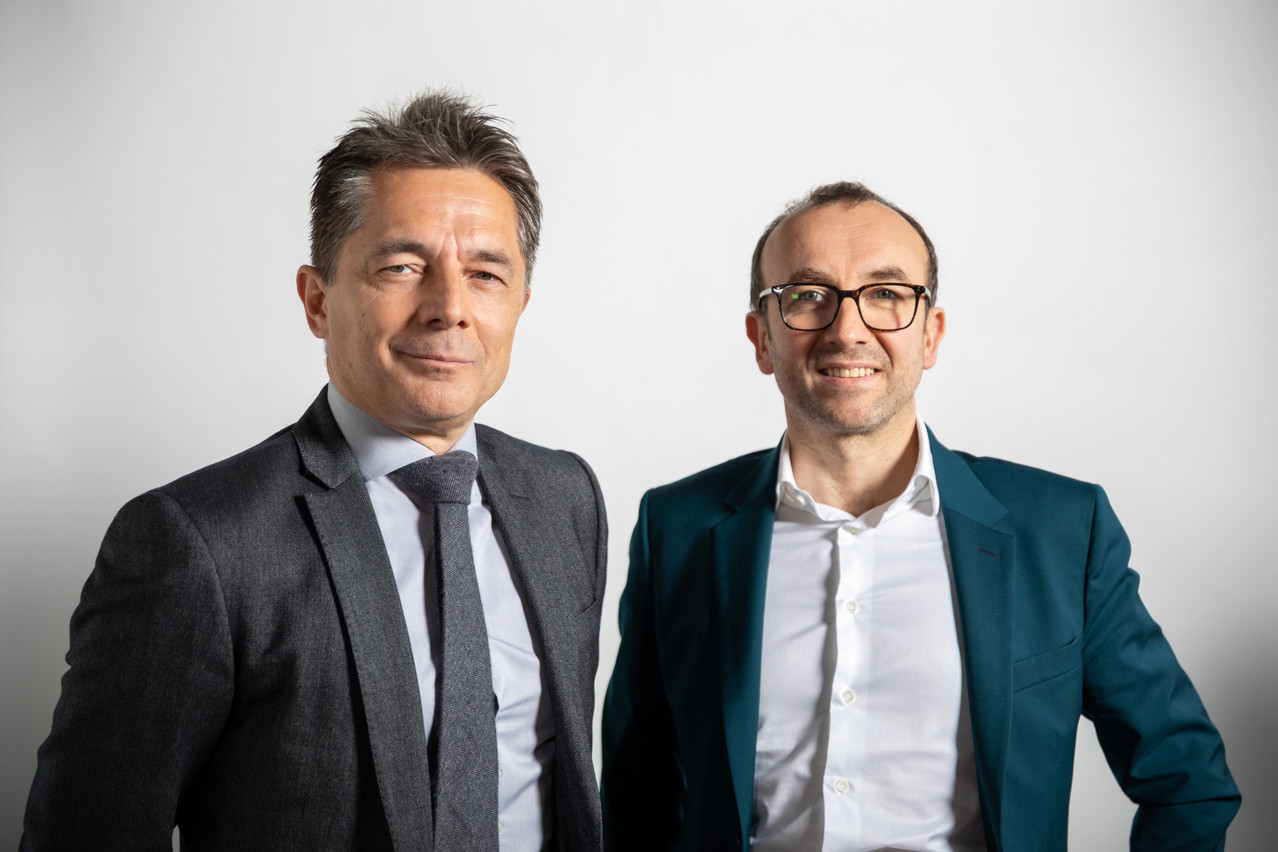Delano's sister publication Paperjam spoke to Gaël Denis, partner TMT (Technology, Media & Telecommunications), and Bernard Lhoest, partner Banking and Capital Markets at EY, about their financial sector. Fintechs are offering more and more banking services while banks are entering the digital transformation.
For Denis the sector has been strongly influenced by the payment and electronic money players a decade ago. The emergence of e-commerce has enabled them to develop mobile payment solutions. “Today, the payment ecosystem has become more complex,” he says. “With 'credit lending' or 'buy now, pay later' solutions, for example, fintechs are starting to obtain banking licences," adds Denis.
While e-commerce companies initiated the first payment solutions in Luxembourg, the fintech sector is now renewing itself with, in particular, the appearance of neobanks. These fintechs, which start out by developing a specific application, then enrich it with traditional banking services such as the management of current accounts, the opening of savings accounts and insurance products. “Since the advent of the PSD2 directive, which brought about the use of APIs, it is also an opportunity for banks to provide new services to their customers,” says Denis.
A number of fintechs specialise in specific skills for which banks are not sufficiently equipped, both technologically and in terms of human resources.
The bank becomes the fintech customer
Both fintech and bank business models are currently undergoing changes. While some fintechs are adopting banking products, others are leaning towards a single service and a limited number of customers. This is particularly the case when it comes to tax management solutions and anti-money laundering requirements.
Banks are looking for help in services that are less strategic to their business: "A number of fintechs specialise in specific skills for which banks are not sufficiently equipped, both technologically and in terms of human resources. Generally, fintechs, because they come later and are in a niche sector, are able to develop tools that are more relevant. The bank then becomes the customer of the fintech," says Lhoest.
Some fear that there is a risk that the two industries will only complement each other in the service provider-client model. "If you look at the regulations, there is still a big difference between fintechs and banks," says Lhoest. “Although conversion to a bank allows a fintech to reach a wider market and distribute more products, bank status is a step towards more regulation, more compliance and more control," he adds. The decision to obtain a banking licence therefore depends, first and foremost, on each company's business model, which entails additional costs and staff.
We no longer recruit only from business schools and accounting universities. We are looking for people from all walks of life.
The convergence of data and regulation
Just as business models have yet to be discovered, the profiles of tomorrow's financial services are not yet fully defined. “Today, there is not necessarily a fintech expert,”says Denis. For him the challenge for the HR teams will be to recruit both technological and regulatory experts who each have "knowledge of software companies, intellectual property management and intangible assets,” says Denis.
While EY's teams working with fintechs were previously trained and equipped to deal with data, those sent to banks were more used to dealing with regulations. By merging these two areas, EY aims to develop a team that masters both skills.
EY will therefore increase its recruitment efforts in the coming years while broadening the types the sought after profiles. “We are no longer recruiting only from business schools and accounting universities,” says Lhoest. “We are looking for people from all walks of life,” he adds.
A challenge for Luxembourg
At the moment, EY Luxembourg is the only firm in its international network to merge its banking and fintech units. This aims to foster expertise without ignoring collaboration. “We are developing our centre of excellence in Luxembourg, because we have been working in particular on payments, virtual currencies and blockchain for about ten years. So yes, centre of excellence in that sense, but also collaboration in an international sense," says Denis.
We are developing our centre of excellence in Luxembourg, because we have been working in particular on payments, virtual currencies and blockchain for about ten years. So yes, centre of excellence in that sense, but also collaboration in an international sense.
With the convergence of banking and fintech, the Luxembourg financial centre is entering a new phase in its development. "Luxembourg remains a very important place in Europe," says Lhoest. According to him, many fintechs will develop and take up residence in Luxembourg in addition to the 19 payment institutions and 12 electronic money institutions already present. “These companies have no other choice than Luxembourg if they want to reach and have as customers all those who reside in Europe,” he adds.
In a Europe that is still looking for its leading jurisdiction to host the banks and fintechs of tomorrow, Luxembourg has every chance despite a somewhat conservative image linked to the private banking and Ucits industry. In this ecosystem each player must play its part. On the one hand, clients are pressing financial sector professionals to change attitudes, products and services. On the other hand, it is important for the regulator to support the industry with the adoption of directives that will enable it to accommodate the different business models that are emerging.
This story was first published in French on . It has been translated and edited for Delano.



